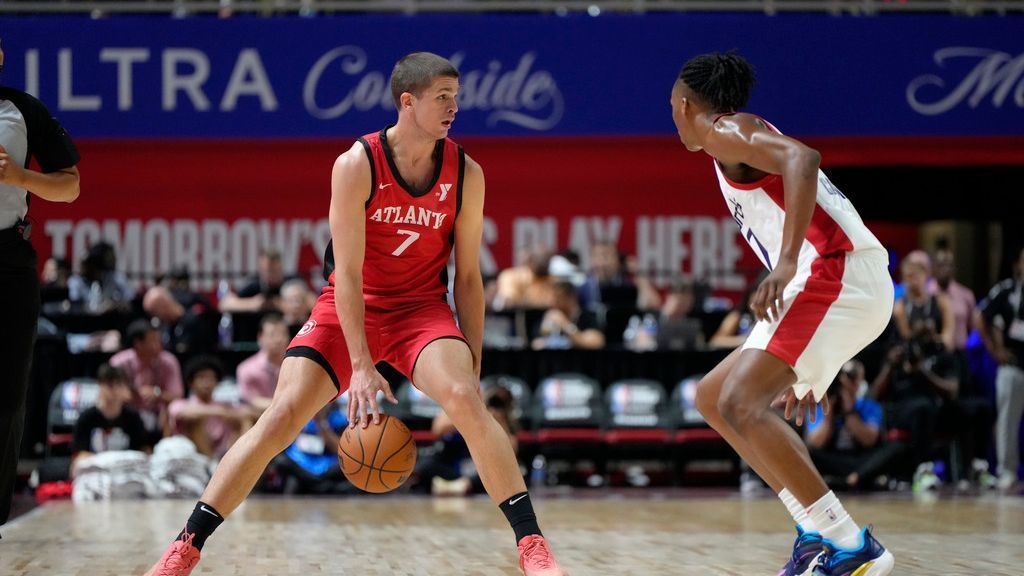The rise of generative AI is making it harder for recent college graduates to get a foothold on the corporate ladder as they start their careers.
Job listings for the kind of entry-level corporate roles traditionally available to young grads have declined 15%, while the number of applications per job has surged 30%, according to data from Handshake, a career platform geared toward Gen Z workers.
Although people fresh out of college often struggle to land entry-level positions in their chosen field, “there are early warning signs” that AI is taking jobs away from the least experienced workers, Doug Calidas, senior vice president of government affairs for Americans for Responsible Innovation, a nonprofit focused on emerging technologies, told CBS MoneyWatch.
“The unemployment rate for recent college graduates being unusually high seems relevant,” he said.
As of March, the U.S. unemployment rate for degree holders ages 22 through 27 was 5.8%, considerably higher than the nation’s overall 4% jobless rate at the time, according to the New York Federal Reserve.
To be sure, most recent college grads are finding work, Calidas emphasized, adding that the latest job figures point to a “deterioration,” not a collapse, in opportunities for young people.
Still, “It’s tough for students who feel like they have done the right thing their whole lives — they went into STEM careers or computer science because they expected software hiring to grow and grow, and that may not happen,” he said.
Just ask Michael Macaluso, 22, who this year earned a degree in mechanical engineering from the University of Connecticut. Despite applying for roughly 200 positions, he has yet to land a job in his chosen field. For now, he’s working as an assistant pool director at the Lake Isle Country Club in Eastchester, New York, his hometown.
“I was told by a lot of people, that I was going to get a job right out of college,” he told CBS News’ Ali Bauman. “And then all of a sudden, there’s no jobs.”
AI redefining the entry-level job
Experts say that because AI is currently best at the kind of rote, repetitive tasks that are a staple of entry-level work, the very nature of what such roles consist of is likely to change.
“The AI piece is becoming more integrated, which is requiring a redefinition of what an entry-level role looks like and the types of skills that might be be needed,” Christine Cruzvergara, chief education strategy officer at Handshake, told CBS MoneyWatch. “So it’s critical for new graduates to make sure they are exposing themselves to AI and learning how to use it.”
Over the past two years, there has been a 400% increase in employers using “AI” in job descriptions, according to Handshake.
Liya Palagashvili, a labor economist at the Mercatus Center at George Mason University, told CBS MoneyWatch that jobs with low barriers to entry are being swallowed by AI. She points to a 2024 study by researchers at the University of Chicago, Columbia Business School, Purdue University, and Stanford Graduate School of Business showing that generative AI is weighing on hiring in occupations that require little education, knowledge or training.
“Any job requiring lower levels or skills or training, that’s where we are seeing a reduction in hiring due to an exposure to generative AI,” Palagashvili said.
By contrast, the study found that, since the release of OpenAI’s ChatGPT in November 2022, demand for workers in occupations requiring a higher level of knowledge and training has risen.
“So you’re seeing a two-segmented market thing going on with ChatGPT having a positive effect on occupations with higher barriers to labor entry, and having a negative effect on occupations that have low barriers to entry,” Palagashvili said. “The latest empirical evidence shows hiring is down in low-skilled occupations, but high in those that require a higher skill level.”
New technologies have always shaped the labor market, snuffing out certain professions while breathing life into new sectors. One difference with the rise of AI that the technology excels at job functions typically associated with white-collar work.
The acceleration of AI could push more young people into skilled trades that don’t require a high-priced college education, Calidas said.
“Since the automation that began in the 1970s, a lot of manual jobs have gone away,” he said. “For a few generations, it’s been an article of faith that white-collar jobs are more safe, whereas blue-collar work is more precarious. There’s been a cultural push toward sending people to college, but it might make more sense to go into the trades.”




